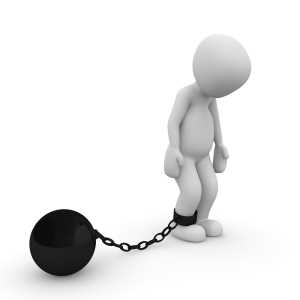Website Text – 5 Tips for What Works
 I am constantly amazed that the most contentious part of the design process for most of the websites we build for clients is the website text.
I am constantly amazed that the most contentious part of the design process for most of the websites we build for clients is the website text.
People have very firm ideas on what the text on a website should say and, sadly, in many cases they are totally wrong.
Sure, they may have looked at the text that appears on other websites but that doesn’t mean that those websites have got the text right either.
So to help you decide what your website text should say and how it should say it here are 5 tips on what works when it comes to effective website text. They are so simple yet all to often people overlook the fact that simple sells.
1. Keep it simple. Simple words and simple concepts are important if you want your website to deliver the outcomes you’re hoping for.
You don’t have to use big words and flourishes of hyperbole to effectively sell your product or service.
2. Short sentences are very important.
Most people find it harder to read text on a screen than they do when it comes in printed form so make it easier for them by using short sentences.
3. Short paragraphs are vital if you want people to read what you write.
Use 2 to 3 short sentences and no more because even that many sentences will look like a huge blob of text on a mobile device.
4. Use plenty of sub-headings because most people do not read every word on a website.
When they land on a website they want the information they’re looking for as soon as they arrive. They don’t want to waste time reading so they scan the text looking for words that are important to them.
Clear sub-headings will help them find what they are looking for.
5. Plain fonts – Use fonts that people can read.
Cursive fonts may look wonderful but these days many people struggle to read anything that appears in an “old fashioned” font.
The same goes for serif fonts so for a business website Verdana and Arial are still the best options.
Keep those 5 simple tips in mind when you’re thinking about website text and you will find that your words will work for you.

 Understanding how Google works can be a challenge so here are ten facts about Google that may help you understand it better.
Understanding how Google works can be a challenge so here are ten facts about Google that may help you understand it better. Just last week Facebook announced some sweeping changes to the way that business pages on Facebook would be allowed to interact with their customers and potential customers.
Just last week Facebook announced some sweeping changes to the way that business pages on Facebook would be allowed to interact with their customers and potential customers.
 One of our clients has recently had their email address blacklisted for spam even though they were not attempting to spam anyone.
One of our clients has recently had their email address blacklisted for spam even though they were not attempting to spam anyone. The original purpose of the Internet was to connect people to information and so website links were born.
The original purpose of the Internet was to connect people to information and so website links were born. We recently published a post here on the website that took a very quick look at some of the ranking factors that we know that Google uses to assess your website. One of those factors that we mentioned was the age of your website.
We recently published a post here on the website that took a very quick look at some of the ranking factors that we know that Google uses to assess your website. One of those factors that we mentioned was the age of your website.
 It may seem hard to believe but the success of your website … and your business … depends on the design of your website.
It may seem hard to believe but the success of your website … and your business … depends on the design of your website.